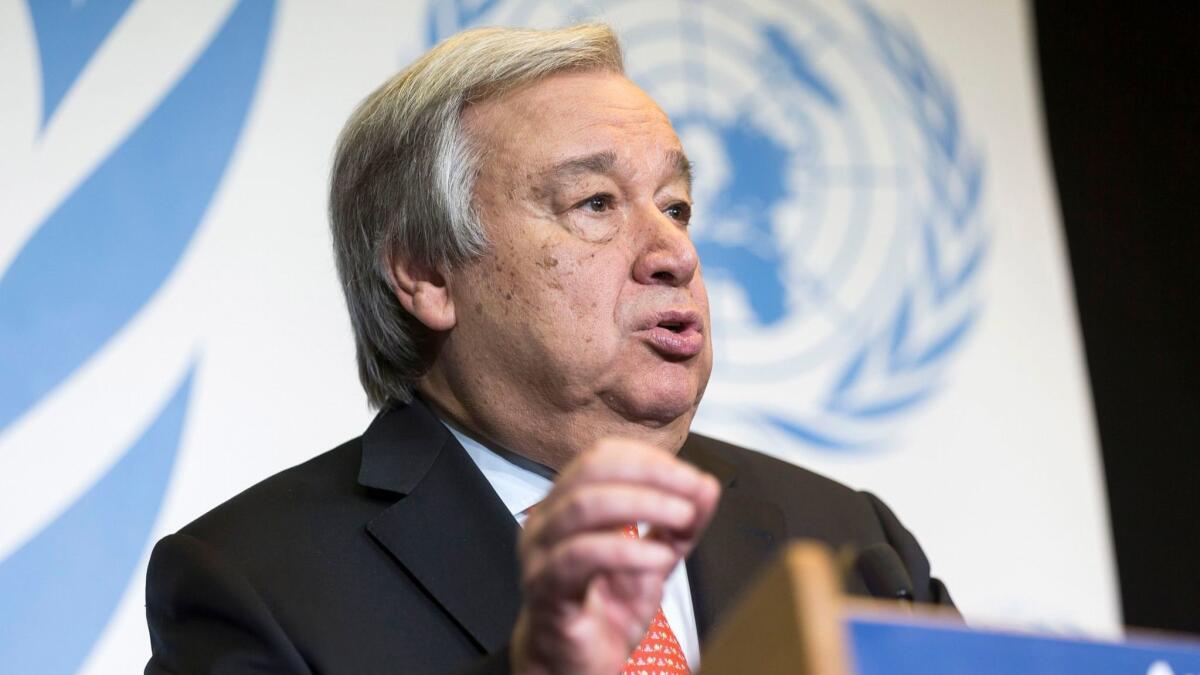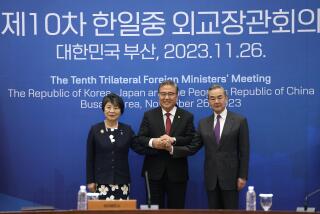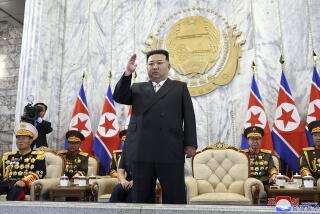‘Disappointed’ and ‘deeply concerned’: World leaders confused after Trump cancels North Korea summit

President Trump’s cancellation of a June 12 meeting with North Korea’s Kim Jong Un has left many international leaders confused as they attempt to understand what comes next in discussions about nuclear disarmament.
In South Korea, President Moon Jae-in said Trump’s “very regrettable” announcement was perplexing.
”We are trying to grasp what President Trump means exactly,” said Kim Eui-kyeom, a spokesman for the Blue House, South Korea’s executive mansion.
Moon said he would call an emergency meeting of top aides to “figure out” next steps after Trump’s announcement, which was made via a terse letter that blamed “tremendous hostility” from North Korea for the cancellation.
“Denuclearization of the Korean peninsula and enduring peace are historic tasks that can not be abandoned or delayed,” he said. “The sincerity of the parties who have tried to solve the problem has not changed.”
In China, where the news broke late Thursday evening, officials had not yet weighed in. But in a tweet, Hu Xijin, the editor of the Global Times, was critical. The Community Party owns the newspaper, which often reflects official thinking.
The United Nations secretary-general, António Guterres, also expressed concern during an appearance at the University of Geneva and via Twitter.
“Deeply concerned by cancellation of meeting between president of the U.S. and leader of the DPRK,” Guterres tweeted, using the initials of North Korea, which is officially known as the Democratic People’s Republic of Korea.
In Europe, British Prime Minister Theresa May was also not pleased with the decision, according to a statement from her representative.
“We are disappointed …. We need to see an agreement that can bring about the complete, verifiable and irreversible denuclearization of the Korean Peninsula,” the statement said.
Back in the U.S., response was mixed, with several Republicans supporting Trump or taking the opportunity to criticize North Korea.
“The North Korean regime has long given ample reason to question its commitment to stability,” House Speaker Paul D. Ryan (R-Wis.) said in a statement. “We must continue to work with our allies toward a peaceful resolution, but that will require a much greater degree of seriousness from the Kim regime.”
Sen. Brian Schatz of Hawaii, which recently began drills in preparation for a possible nuclear attack from North Korea, described the decision as “an error.”
“This is what happens when amateurs are combined with warmongers,” Schatz, a Democrat, tweeted. “This is NOT secretly smart and clever, and any pundit or politician who even flirts with that idea is deeply, deeply unserious.”
Special correspondent Matt Stiles in Seoul contributed to this report.
More to Read
Start your day right
Sign up for Essential California for news, features and recommendations from the L.A. Times and beyond in your inbox six days a week.
You may occasionally receive promotional content from the Los Angeles Times.






